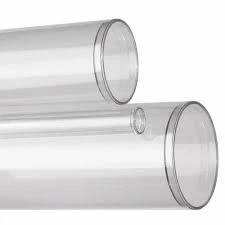Nov . 21, 2024 02:46 Back to list
hdpe agriculture pipe
The Advantages of HDPE Agriculture Pipes in Modern Farming
In the ever-evolving world of agriculture, efficient water management is crucial for maximizing crop yields and sustaining resources. High-Density Polyethylene (HDPE) pipes have emerged as a revolutionary solution for irrigation systems across the agricultural sector. With their unique properties and versatile applications, HDPE pipes offer numerous benefits that cater to the needs of modern farming.
The Advantages of HDPE Agriculture Pipes in Modern Farming
Moreover, HDPE pipes are lightweight and easy to install. This characteristic greatly simplifies the installation process, allowing farmers to set up irrigation systems quickly and efficiently. The flexibility of HDPE also means it can be laid out in a variety of configurations, accommodating the specific needs of different fields and crops. This adaptability allows farmers to optimize water distribution according to varying terrain and plant requirements, resulting in better resource utilization.
hdpe agriculture pipe

Another significant advantage of HDPE pipes is their ability to facilitate efficient water flow. The smooth interior surface of these pipes reduces friction, allowing water to flow more freely compared to other materials. This translates to less energy consumption when pumping water and minimizes the chances of water stagnation that can lead to microbial growth. Consequently, farmers benefit from improved irrigation efficiency, ensuring their crops receive the necessary hydration without overburdening their energy resources.
HDPE pipes are also environmentally friendly. They are produced from recyclable materials, making them a sustainable choice for the eco-conscious farmer. The efficient water management afforded by these pipes can also contribute to water conservation efforts, an increasingly important factor as water scarcity becomes a pressing global issue. By adopting HDPE pipe systems, farmers can play an active role in promoting sustainable agricultural practices.
Furthermore, the versatility of HDPE pipes extends beyond irrigation. They can be utilized for various agricultural applications, such as drainage systems and water supply lines. This multifunctionality provides farmers with a comprehensive solution for managing water effectively on their farms. Whether it's directing rainwater runoff or ensuring a consistent water supply to livestock, HDPE pipes offer a reliable option for diverse agricultural needs.
In conclusion, HDPE pipes represent a significant advancement in agricultural irrigation and water management. Their durability, lightweight nature, efficiency in water flow, and environmental benefits make them an attractive option for farmers looking to enhance their operations. As the agricultural sector continues to face challenges related to water scarcity and resource management, the adoption of HDPE technology is likely to become increasingly prevalent. By investing in HDPE agriculture pipes, farmers can not only improve their productivity but also contribute to a more sustainable future for agriculture.
-
High-Quality PPR Pipes and Fittings Durable ERA PPR & PVC PPR Solutions
NewsJul.08,2025
-
Black HDPE Cutting Board - Durable, Non-Porous & Food Safe HDPE Plastic Cutting Board
NewsJul.08,2025
-
High-Quality CPVC Panel Durable HDPE & PVC Panels Supplier
NewsJul.08,2025
-
Double PE Welding Rod Supplier - High Strength, Durable & Versatile Welding Solutions
NewsJul.07,2025
-
High-Quality PVC-O Pipe Supplier Durable 75mm PVC Pipe & Connections Leading PVC Pipe Company
NewsJul.07,2025
-
HDPE Drainage Pipe Supplier – Durable & Corrosion-Resistant Solutions
NewsJul.06,2025

